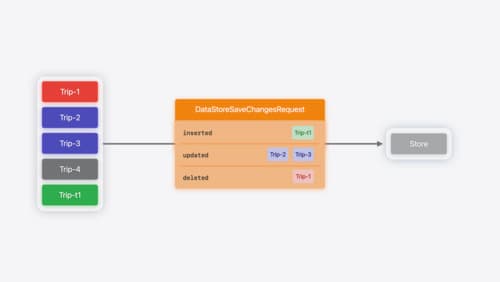swiftdata for application settings
Asked on 2024-08-25
1 search
SwiftData is a framework introduced by Apple that simplifies building your app's model layer and persisting it across app launches. It provides features like schema modeling, migration, graph management, and synchronization with CloudKit. For application settings, SwiftData can be particularly useful due to its ability to handle data persistence and schema management efficiently.
To use SwiftData for application settings, you can define your settings as models using SwiftData's model macro. This allows you to persist settings data across app launches and even synchronize it with other devices using CloudKit. You can also customize your data store to use different backends, such as JSON files or SQLite, which can be beneficial for storing application settings in a format that suits your app's needs.
For more detailed information on adopting SwiftData and customizing data stores, you can refer to the session What’s new in SwiftData (01:01) and Create a custom data store with SwiftData (04:50).

Platforms State of the Union
Discover the newest advancements on Apple platforms.

Create a custom data store with SwiftData
Combine the power of SwiftData’s expressive, declarative modeling API with your own persistence backend. Learn how to build a custom data store and explore how to progressively add persistence features in your app. To get the most out of this session, watch “Meet SwiftData” and “Model your schema with SwiftData” from WWDC23.

What’s new in SwiftData
SwiftData makes it easy to add persistence to your app with its expressive, declarative API. Learn about refinements to SwiftData, including compound uniqueness constraints, faster queries with #Index, queries in Xcode previews, and rich predicate expressions. Join us to explore how you can use all of these features to express richer models and improve performance in your app. To discover how to build a custom data store or use the history API in SwiftData, watch “Create a custom data store with SwiftData” and “Track model changes with SwiftData history”.
